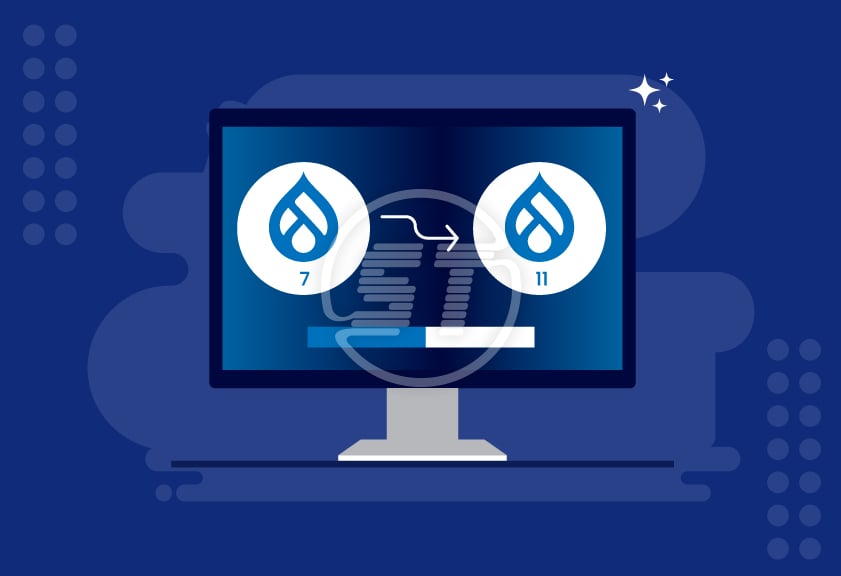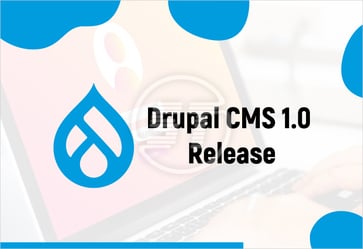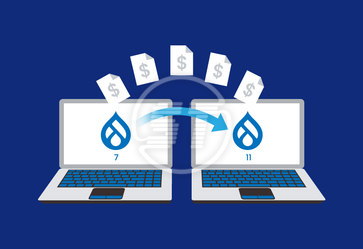The Drupal platform has been a reliable choice from long for businesses and organizations seeking robust and customizable content management solutions. However, as technology evolves, so does the need for modernized systems.
Since Drupal 11 is early, migration is inevitable. Importantly, migrating from Drupal 7 to 11 is more than just an upgrade. It’s a significant leap that brings new opportunities but also shows notable challenges.
This article explores the hurdles of migrating from Drupal 7 to 11 and provides a comprehensive checklist to guide through the process.
Challenges in migrating from Drupal 7 to Drupal 11
- End-of-Life (EOL) for Drupal 7: It is official that Drupal 7 support is ending on January 5, 2025. While this extended timeline offers a buffer, several organizations still face pressure to plan and execute migration before security updates cease.
- Fundamental architecture changes: Drupal 8 introduced a new architecture based on Symfony, which continues in Drupal 11. Migrating from Drupal 7 requires rebuilding the site, as the core systems and APIs have significantly changed.
- Module compatibility: Many contributed and custom modules in Drupal 7 are either unavailable or require redevelopment in Drupal 11. Ensuring feature parity often involves custom coding and testing.
- Data migration complexity: The Migration API facilitates data transfer, but large datasets, multilingual content, and complex content steps can complicate the process. Manual intervention may be required to handle inconsistencies.
- Theme redesign and responsiveness: Drupal 7 themes are incompatible with Drupal 11 web development. Therefore, organizations need to redesign the theme or build a new one, taking advantage of Drupal’s modern front-end frameworks like Twig.
- Skill and resource gaps: Migrating to Drupal 11 demands expertise in modern web technologies, such as Symfony, Twig, and Composer. Organizations without in-house Drupal 8/9/10/11 expertise may need to rely on external developers or agencies.
- Time and budget constraints: A migration project requires detailed planning, testing, and implementation. Without proper resource allocation, projects may face delays or budget overruns.
A comprehensive checklist for Drupal 7 to 11 migration
Platform requirements
- Update to PHP 8.3
Drupal 11 needs PHP 8.3 with the zlib extension enabled. Most Drupal websites have this extension enabled by default, so they only require updating PHP to its 8.3 version.
- Drush 13 is needed
To migrate to Drupal 11, Drush 13 should be available.
Use syntax: composer requires drush/drush ^13
- Database requirements
Database drivers that are required to support Drupal 11 are:
The minimum requirement for MySQL database driver is MySQL 5.7 backport module. However, MySQL 8.0 is recommended to use Drupal 11.
Although MariaDB 10.5 can be used temporarily; MariaDB 10.6 upgrade is suggested for the migration.
PostgreSQL 16 database driver is required.
SQLite 3.45 with JSON1 extension.
- Web server
Drupal requires Apache 2.4.7 or higher version. Please note that Drupal 11 does not provide a web.config file and support for IIS is also withdrawn. Therefore, websites using IIS have been asked to switch to a supported web server. Moreover, if any website encounters bugs while using other servers, they must report them.
- Dependencies
jQuery 4
Symfony 7
Composer 2.7.7
PHPUnit 10
- Update to PHP 8.3
Strategic Drupal 7 to 11 migration requirements
- Pre-migration planning
Identify the content types, modules, themes, and third-party integrations in the current Drupal 7 site.
Clarify the aim to achieve with the migration such as improved performance, better UX, or enhanced scalability.
Collaborate with all stakeholders to gather requirements and align expectations.
- Content and data assessment
Determine the part of content that needs to be migrated, archived, and removed.
Plan for migration of multilingual Drupal site accessible content, ensuring compatibility with Drupal 11’s multilingual modules.
Create a full backup of the Drupal 7 site before starting the migration process.
- Module and theme mapping
Identify contributed modules used in Drupal 7 and check their Drupal 11 equivalents or alternatives.
Rewrite or adapt custom modules for Drupal 11 compatibility.
Design a new responsive theme or update the existing design to use Drupal 11’s theming engine.
- Migration environment setup
Set up a local or staging environment for testing the migration process.
Use tools like Composer, Drush, and the Drupal Migration API to facilitate migration.
- Execute the migration
Leverage the Migrate and Migrate Plus modules to transfer data and configuration.
Validate the migration in phases – content, modules, and themes – to ensure accuracy.
- Post-migration optimization
Address any issues related to URLs, internal links, or missing assets.
Optimize caching, CDN integration, and server configurations for better performance.
Provide training for administrators and content editors to familiarize them with Drupal 11.
- Go Live and Monitor
Perform thorough QA and UAT to ensure the site meets expectations.
Deploy the Drupal 11 site in the production environment.
Use analytics and monitoring tools to track site performance and user behavior post-launch.
- Pre-migration planning
In a nutshell,
Migrating from Drupal 7 to Drupal 11 is a significant undertaking, but it ensures long-term security, improved performance, and access to cutting-edge features. By addressing the challenges head-on and following a structured checklist, organizations can navigate this transition smoothly and unlock Drupal 11's full potential.
Facing challenges in your Drupal 7 to 11 migration?
Preparation is key! Our detailed checklist covers everything from module compatibility to performance optimization, helping you navigate common migration hurdles with ease.
Don’t let challenges delay your upgrade – Hire our Drupal developers to ensure a smooth transition that aligns with your business goals. Reach out at [email protected].


